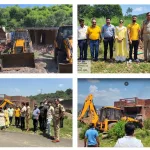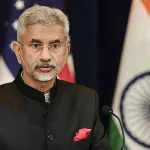Jammu and Kashmir, like all other places, is witnessing a rapidly changing demographic scenario with fertility levels undergoing significant changes and issues of women’s health. The TFR of the state has now come to 1.4 children per woman, which is way below the replacement level of fertility, and that is testimony to the changes in social values and reproductive health. Even though fertility rates are declining, especially in the urban centers, the government should take proactive measures to address the root cause and offer health and fertility support for women.
Important Observations and Challenges:
Decline in Total Fertility Rate
The total fertility rate has experienced a decline of 0.6 children between NFHS-4 and NFHS-5 (National Family Health Survey for 2019-21), with urban areas exhibiting a total fertility rate of 1.2 and rural areas reflecting a slightly higher rate of 1.5. This trend signifies progress towards a more balanced population growth; however, it also underscores wider societal transformations, such as delayed marriages and reduced family sizes. A significant contributing factor to this trend is the new phenomenon of women preferring education and pursuing careers instead of marrying early in life and reproducing.
Late Marriages
The trend of late marriages, especially of the women folk, is being followed in Kashmir because the society has started changing and taking a different shape altogether. Women are now preferring to attain education and career first and then marriage and settlement. However, late marriages often mean less time for childbearing and make the conception process even more difficult because fertility decreases with age after 30 years. Besides, marriage in Kashmir, like other areas of India, has been relatively expensive. The wedding costs and the cost of marriage rituals and banquets are high. For many families, especially from poor economic backgrounds, managing these costs is a significant concern.
Achieving stable employment would benefit people, including women, in earning revenues against such marriage-related expenses. What has worsened the current scenario of Kashmir is also its recent past of rising inflation and economic uncertainty. The increase in living expenses has made the achievement of a fixed income through employment the key to controlling daily spending. In such an environment, many individuals and couples want to secure employment before marriage in order to ensure that there is a stable financial basis established before assuming the increased financial responsibilities of marriage and raising children. This is a highly important biological reality that constitutes a huge problem for women who delay childbearing in pursuit of professional and personal objectives.
Expensive Fertility Treatments
Another major issue is the expensive fertility treatments to which the couples in Kashmir are subjected. IVF and other assisted reproductive technologies are highly required by many couples, who are not able to conceive. However, a cycle of IVF costs more than Rs 1 lakh in Srinagar as well as anywhere else in India, and thus is impossible for most people to afford. Infertility, with its financial burden and emotional stress, therefore calls for affordable fertility treatment in the region. The condition is not just medical but touches many aspects of life, especially psychological health, creating mental suffering, emotional torture, and financial problems for the couple. According to findings, differences in emotion occur to such as extent that affects anger, feelings of guilt, sadness, depression, anxiety, and even a lack of self-confidence and self-esteem. With so much on the line, many couples cannot afford treatment, and the widespread hope is completely lost
Increasing incidences of health issues pertaining to problems concerning their fertility in younger women within Kashmir include Obesity and PCOS. Both these health-related issues cause serious damage in terms of fertility, further escalating the issue of conceiving in women. According to JAMA Network, Kashmir bears the prevalence of polycystic ovary syndrome (PCOS) in the population women aged between 15 years and 40 years: with a prevalence of 35.3%. This is one of the highest prevalence rates of PCOS in the world. Unhealthy dietary habits and sedentary lifestyles together with high levels of stress significantly contribute to these concerns. This is further worsened by environmental pollution and food adulteration, which harms women’s hormonal health as well as their reproductive functions.
Societal Pressure
Young couples in Kashmiri society feel much pressure to conceive a child shortly after their marriage because most of the in-laws regularly ask about the pregnancy. Such societal pressure creates huge emotional stress in women’s minds, which may have a further effect on their reproductive abilities. The pressure to conceive creates much anxiety, thus making it complicated for couples to begin their family life.
Increasing Cases of Food Adulteration and Environmental Pollution
The growing cases of food adulteration and environmental pollution in Kashmir are one of the emerging issues. Chemical additives in food, besides the lack of fresh and healthy produce, disrupt the hormonal balance of the body and thus hamper fertility. The rising cases of junk food consumption along with environmental pollution are also exacerbating these fertility-related issues among the young generation.
Policy Recommendations for Addressing Key Issues in Jammu & Kashmir
Public Health Awareness Campaign for Reproductive Health, the government should conduct mass health education for the propagation of reproductive health awareness regarding the impact of delayed marriages and the need for timely family planning. Such education programs for the urban as well as the rural masses will enable women to take sound decisions regarding marriage, conception, and menstrual health. Hygienic method of menstruation protection is essential for the health and hygiene of women.
The National Family Health Survey (NFHS-5) reported that young girls aged 15 to 24 years in Jammu and Kashmir have diverse practices: sanitary napkins are used by 51%, cloth by 58%, locally prepared napkins by 23% and tampons by 3%. In total, 74% of women are using hygienic methods with an improvement from 67% in NFHS-4. However, disparities still exist as only 71% of rural women used hygienic methods, while 86% of urban women used hygienic methods. Infections from unhygienic menstrual protection methods will significantly increase the risk of conditions such as PCOS, which may eventually lead to infertility. This calls for the critical need to improve access to and awareness of hygienic menstrual practices in the rural areas with an improved health outcome for women throughout the region.
Subsidizing Fertility Treatments
The government can subsidize IVF and other Assisted Reproductive Technology for low-income families to easily access fertility treatment. This will reduce the financial burden on couples and will give them more chances to overcome their infertility. Considering that financial support matters in fertility treatments, various governments have implemented programs and initiatives to help couples with fertility issues. For example, in Goa, the Matrutva Yojana is offering an amount of Rs 500,000 to those tribal couples who have failed to conceive even after three years of marriage.
This scheme includes almost all expenses related to IVF, including medicines and hospital charges, and aims at enhancing the birth rate in scheduled tribes in the state. A similar program should be started in Jammu & Kashmir, where sterility has become an increasingly problematic issue due to socio-economic and health-related factors. A state-sponsored fertility support scheme would effectively mitigate the problems that low-income couples face, ensuring that both access to reproductive technologies will be fair. Such efforts would not only improve health outcomes but also boost the emotional well-being of those couples trying to build families.
Food and Environmental Quality
In Jammu and Kashmir, food adulteration has been found to be a significant public health issue. According to the report of FSSAI, nearly 19.4% of the samples of processed foods failed to pass the test of safety standards. Milk, spices, grains, oils, and sweets are common items adulterated by harmful substances either to give them a color or for increasing shelf life. For example, milk is often mixed with water or starch, which gives rise to the threat of food poisoning and further develops chronic diseases. The government has taken some steps against this issue, like testing for food items and scheduled inspections of food industries. However, the alarming degree of adulterated food confirms that consumer awareness has to be improved and strictness of laws has to be adopted. Protecting public health requires enhancing the strength of food adulteration laws and pollution control programs. Cooperative efforts between different governments and local administrations ensure fresh, pure food that will be accessible to its people, which at the same time reduce environmental pollutants that degrade human reproduction and overall health condition.
Providing Emotional and Psychological Support
Within the context of Kashmir, women encounter significant emotional challenges associated with infertility, frequently experiencing stigmatization and pressure to meet societal expectations concerning motherhood. Evidence suggests that a considerable number of women endure substantial psychological distress stemming from infertility problems, with research indicating that more than 50% of women in this demographic display symptoms of moderate to severe depression. Such feeling of inadequacy and isolation among these ladies, which value in relation to their capability of getting a conception, has been left owing to this stigma concerning childlessness. All this is being reinforced by higher rates of infertility contributed factors like delayed marriages, a higher incidence of polycystic ovary syndrome (PCOS).
Healthcare Infrastructure
Dismal health infrastructure poses an enormous challenge in rural Jammu & Kashmir. Of the 890 Primary Health Centres across the area, only 690 are housed within buildings owned by the government; the remaining 200 are managed on rented premises which typically fail to provide even basic infrastructures like clean and assured water supply and electric supply. Similarly, thousands of sub-centres are managed from very dismal facilities, strictly curtailing their ability to provide vital health care services. Another added wrinkle in this situation is a severe doctor shortage in rural areas.
According to research studies, there is a deficit of 577 doctors in the PHCs and hundreds of vacancies are vacant for specialists at the CHCs. This means there is a severe deficiency of manpower in the accessibility of reproductive health services. Numerous women have to travel vast distances to access this health service; their health is repeatedly compromised while waiting for the reproductive care. The UT must invest resources in the refurbishment of health infrastructures in the rural and disadvantaged areas. The availability of reproductive health services, which include counseling, examination, and treatment, will play a very significant role in the region’s fertility and health issues. It would support the development of structures, address the gaps in human resource, better the health-related outcomes, and ensure equitable access to essential care for all the patients.
Conclusion
Empowering women in Jammu & Kashmir to overcome fertility and health challenges requires a multi-faceted approach with regard to societal, economic, and health barriers. Declining fertility rates in the region, caused by delayed marriages, lifestyle changes, and conditions such as PCOS, indicate an immediate need for interventions. Another reason, equally relevant, is the psychosocial burden of failure to conceive and the monetary expenditure associated with it due to high costs of treatment and societal pressure. Key strategies include increasing awareness about reproductive health, subsidizing fertility treatments, and providing access to hygienic menstrual practices, especially in rural areas. Combating food adulteration and environmental pollution is important to protecting women’s hormonal and reproductive health, while providing emotional and psychological support can reduce the stress of infertility.
Strengthening the health infrastructure and addressing manpower shortages in rural areas are crucial to providing equitable access to reproductive services. Investments in better facilities and specialized care will not only improve health outcomes but also support women in achieving their family and personal aspirations. Through these measures, Jammu & Kashmir can create a more inclusive and supportive environment that empowers women, promotes health equity, and addresses the region’s fertility challenges comprehensively.
(Dr. Firdous Ahmad Malik is Assistant Professor of Economics, Department of Management, University of People, Pasadena, California, United States. Email: [email protected]. Owais Ismaeil is Doctoral Fellow, Centre of Advanced Study, Department of History, University of Delhi. Email: [email protected])








